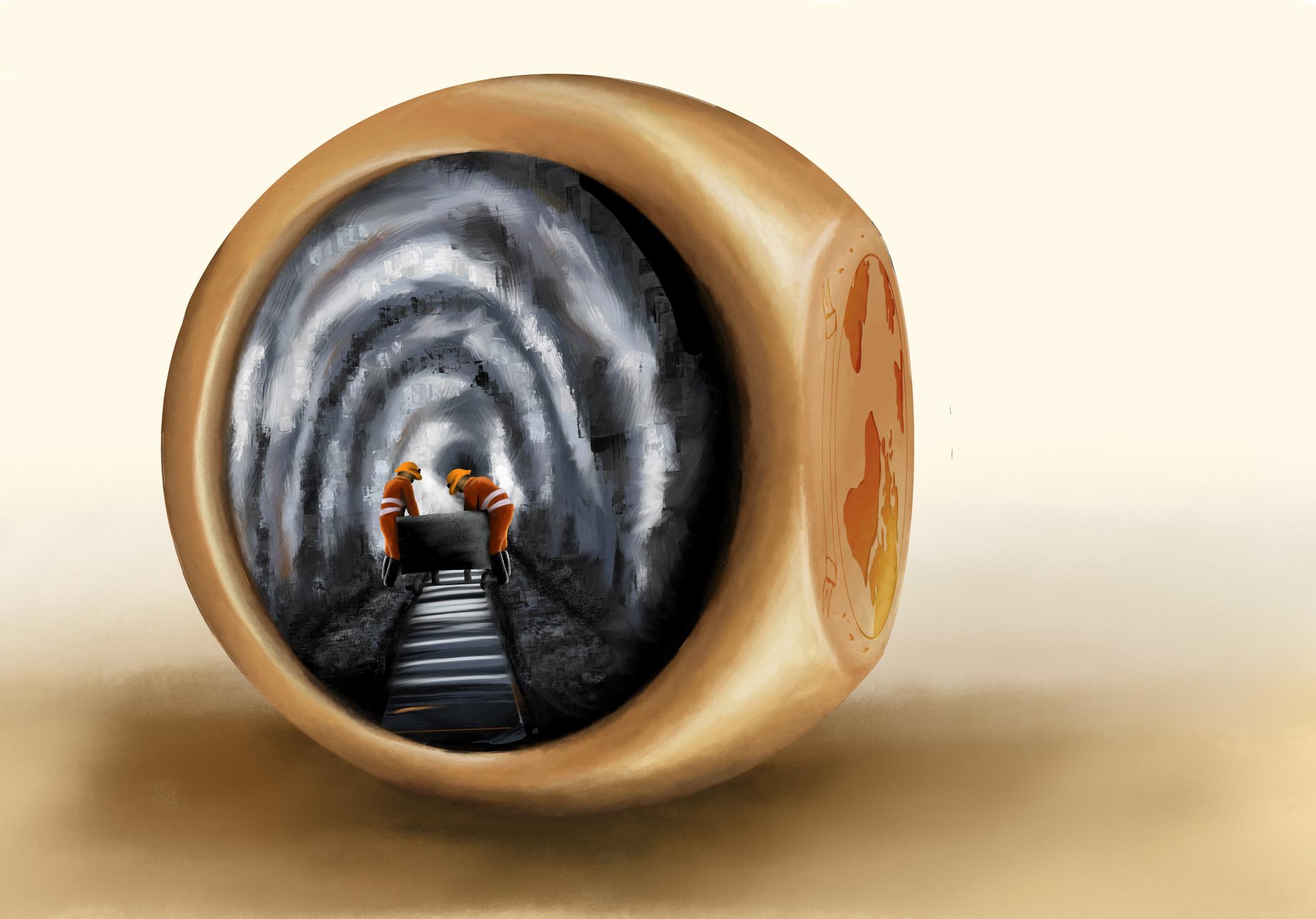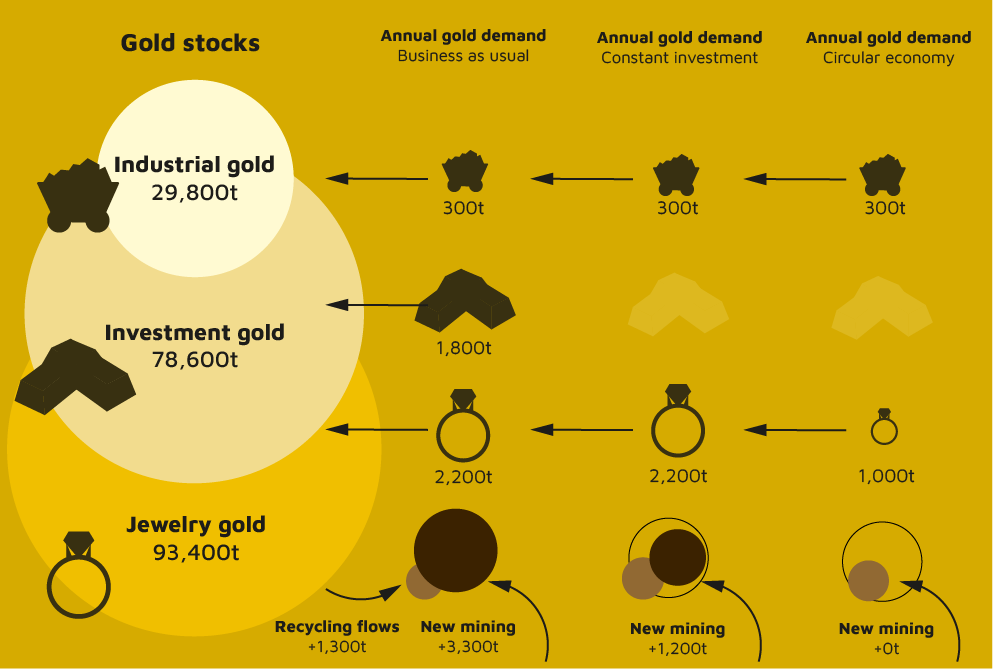Stop mining for new gold, say Oxford researchers

- Enough gold is already in circulation for tech and trading
- Gold mining is extremely harmful to the environment and people
Researchers at the Smith School of Enterprise and the Environment, University of Oxford have called for an end to gold mining in an academic paper published in Environmental Research Letters, because recycled gold would be sufficient for the limited essential services and products the metal provides.
The research highlights how the carbon footprint of the global gold industry comprises 0.3% of global emissions, more than all of intra-European aviation, while 38% of global mercury emissions from human activity (which can cause severe neurological issues) stem from small-scale gold mining in the global south.
The water footprint of gold mining is also vast, with one kilogram of gold requiring, on average, 265,000 litres of water to produce. And while the metal has uses in technology, only 8% globally is put towards this purpose, while 92% each year is made into jewellery or stashed in bank vaults.

The research outlines two possible scenarios for the future of gold mining:
1. The stock of invested gold is fixed at present levels, with mining reduced by 60% as a result.
2. A fully circular gold economy, with no mining at all, to examine whether recycling alone could meet demand for technology while producing a surplus to allocate to jewellery production.
In the second scenario, recycled gold production in the first year would meet demand for all technological applications, while meeting more than one-third of current demand for jewellery. “Put simply: even a hypothetical near-term end to gold mining would not necessarily derail any of the three central functions of gold in investment, jewellery, and technology,” say the authors.
However, they acknowledge that their proposals would be a “bitter pill to swallow” for gold mining firms and their workers. Lead author Stephen Lezak, researcher and programme manager at the Oxford Smith School, comments:
“Millions of people around the world rely upon mining for their livelihoods, including up to 19 million artisanal gold miners. Like coal, oil, and gas, these industries and the workers they support deserve a ‘just transition,’ ensuring that communities do not become collateral damage. But just as the benefits of fossil fuel companies do not justify the long-term burning of coal, oil, or gas, neither do the benefits of mining firms justify continued gold extraction.”
Communities cannot be left out of these conversations, agrees co-author Morgan Bazilian, Director of the Payne Institute and a Professor of public policy at the Colorado School of Mines. They have the most to gain, and the most to lose, from the transition to a circular gold economy.
Despite gold mining’s environmental impact and limited benefits for humanity, the World Bank has invested $800 million in nine gold mines Africa, Asia, South America, and the Pacific Islands since 2010.
“Gold mining stands out for the scope of its harmful impact,” concludes Lezak. “The transition to a circular gold economy offers a plausible, if partial, pathway toward a more sustainable world.”

